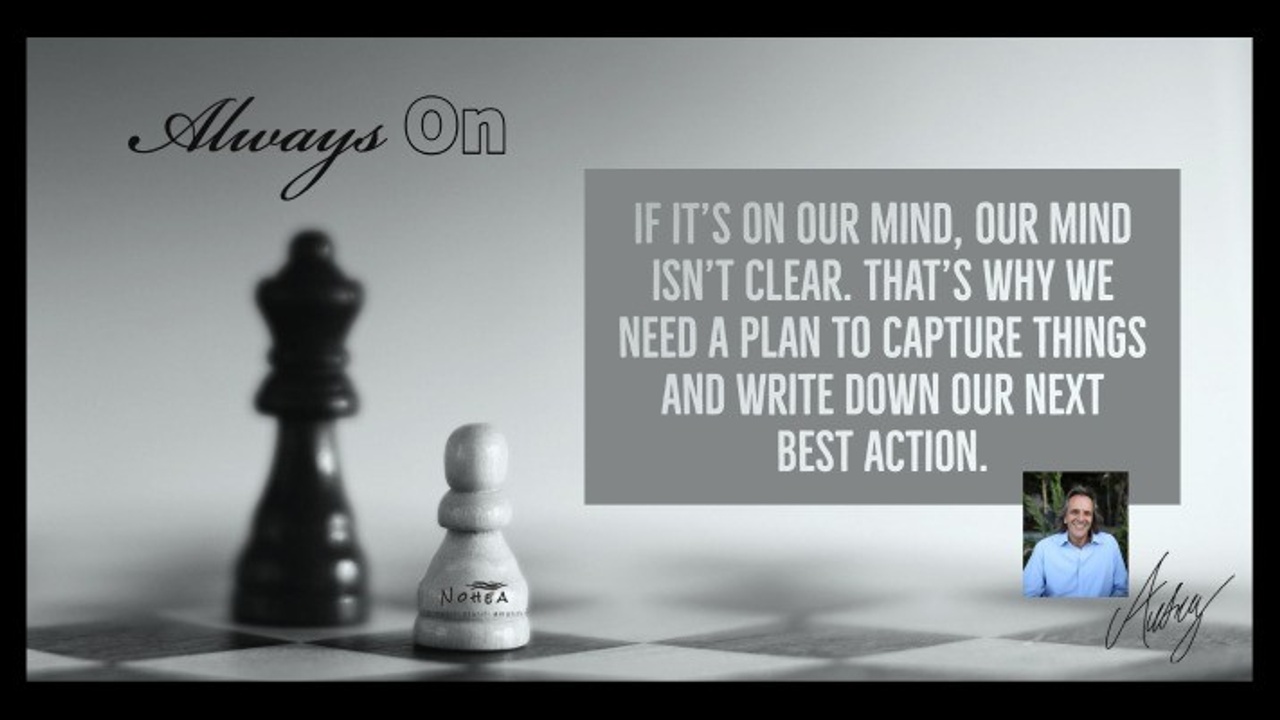Reflection Turns Experience into Insight

How do you evaluate yourself?
Most of us overthink this sometimes frightening word and we are often our toughest critics when we make a mistake.
Many claim to be proponents of a growth mindset and offer phrases like fail forward and becoming is better than being quite generously to their friends and family.
And of course, that's a good thing, but we typically aren't so kind to ourselves.
Three reflective questions can help us become better at learning from our missteps and ensure that we acknowledge our successes too.
When we are trying to learn a new habit, we greatly increase our chances of success by habit-stacking a new habit to one that already exists. It would be so simple to take two minutes to reflect daily while clearing our workspace, driving home, or brushing our teeth.
How did I add value to others?
What did I learn?
What do I love?
The greatest way to maximize what you've done is to evaluate it. (Maxwell)
These three questions, asked consistently, are a powe...
Gradually, Gradually, and then Suddenly

Do you want to create something new?
Maybe it's simply a form that you feel could be improved, or perhaps it's something larger like implementing a bring forward system in faculty meetings.
It's always tempting to just do it, which, of course, is fine if you are the only person this affects in the foreseeable future.
But even the smallest stone creates ripples in the water.
Letting people know about a change you are thinking about making might help you or them to improve more than the item that currently holds your focus.
What if a tab you are adding in a spreadsheet might save time and eliminate headaches for others if you included a drop-down menu or date-picker?
We won't know if we go it alone.
Little things add up to big things.
Gradually, gradually, and then suddenly we have something special.
Teamwork makes the dream work. (John Maxwell)
If you want to go quickly, go alone. If you want to go far, go together.

Meetingitis

Have you ever sat in a meeting and wondered, "couldn't this have just been an email?"
We all have.
And most certainly we've all led or contributed items in a meeting with information that could have been better delivered without a captive audience who are all facing their own time-crunches.
Of course, there are times a leader needs to deliver information or a tough message with clarity, but common sense tells us that if we're going to bring people together, in most cases, it should be for shared expertise and contribution.
Uncommon sense maybe?
Other than delivering information ahead of time in an email, there are other tools we can use. And this doesn't have to only be for big staff meetings. In fact, the battle with meetingitis can be won in small teams in offices too!
Some teachers flip their lessons. Where it makes sense, they use tools like Screencastify or Loom so their students can watch the lesson and spend time in the classroom asking questions.
It's so easy. Especial...
Carry Your Weather

Have you ever noticed how some people seem to brighten and warm-up every room they enter 😀?
Like a weather front moving in, everyone feels a change as soon as they enter the conversation.
Good or bad, we all carry our own weather.
Certainly, carrying good weather comes easier to some than others, but whether we are greeting a visitor at the front desk, leading a meeting, or listening to someone else lead, we have the ability to be a room brightener.
Whether the room brightens when we enter or exit is most often is determined by the weather we carry.

Feeling helpless?

Is feeling helpless becoming routine?
It's only natural that a pandemic and the terrible events we've witnessed become hope and energy vampires. We fight the good fight each day with clarity, compassion, community, and courage.
We may feel discouraged, exhausted, lonely, and a plethora of other very real emotions, but we can't allow ourselves to feel helpless.
What we think about almost always influences what we will and won't do next. If we allow ourselves to feel helpless, we run the risk of allowing our actions will follow suit.
Thankfully, the space between feelings and actions is also ripe with opportunity.
When hope is dwindling, we can double down on being helpful.
The power of focusing on being helpful isn't in doing more, but in being mindful that even in the face of extremely difficult circumstances, we continue to make a mark on the world.
You are today where your thoughts have brought you, and you will be tomorrow where your thoughts take you because your thoughts dr...
Hire Givers, Lead Easy

Have you ever been ready to hire someone and something just doesn't feel right? How about that situation where you have to decide between two people who seem equally qualified? Or maybe you've just been introduced to a new staff member and you can't help but wonder how that person even got through an interview?
Hiring well is often the difference between success and failure. In Give and Take, Adam Grant demonstrates how at work "most people operate either as takers, matchers, or givers. Whereas takers strive to get as much as possible from others and matchers aim to trade evenly, givers are the rare breed of people who contribute to others without expecting anything in return."
Of course, no one is entirely a giver, taker, or matcher. It's what we do most of the time that places us in one camp or another.
It doesn't take too much study or time to identify how someone operates, but surfacing reality can be difficult in the artificial confines of a job interview. Many applicants that ...
Replace Negative Loops with a Highlight Reel

In 2005, the National Science Foundation published an article that found the average person has about 12,000 to 60,000 thoughts per day, of which 80% are negative, and 95% were repetitive thoughts from the previous day.
Our minds too often focus on the negative, and even worse, create a playlist that loops daily.
Another study that same year (Leahy, Study of Cornell University), identified 85% of our worries never materialize and that 97% of our worries are baseless.
Not all negative thoughts are created equally. Being aware of danger can help us survive, but most negative thoughts only serve to create pessimism and useless drama.
Watch your thoughts; they become words. Watch your words; they become actions. Watch your actions; they become habit. Watch your habits; they become character. Watch your character; it becomes your destiny. — Lao Tzu
So how can we surface and nurture positive thoughts?
The highlight reel, an exceptionally powerful tool from David Nurse's book, Pivot ...
The means or the end?

No plan ever survives its collision with reality.
We often coach well-intentioned leaders who are serial planners. Inevitably when we try to drive home the point that someone actually needs to do the work, we will start with a smile and the phrase no plan ever survives a collision with reality.
But we’re not going to say this anymore.
Because for the serial planner, it's simply not true.
The inertia that plagues many school districts and schools is all too often poorly masked by lofty, beautifully crafted, and jargon-filled plans and mission statements that aren’t affected by reality.
Many well-intentioned plans lose track of the very problem that is being solved and become the end and not the means.
The very best plans are malleable and adjust to the needs of the students, teachers, and community. Plans should be active documents and if they are printed, they should be dog-eared and wear their fingerprints and coffee stains proudly.
Many years ago, a well-traveled priest was presenting...
Always On

Do you feel like there's a lot of stuff coming at you?
If so, you might be suffering from the always-on conundrum.
You know that feeling that something will come at you at any time or that awful persistent thought that you might be missing something?
It's hard to put edges on our work in the information age.
Just fifteen or twenty years ago, people could parcel off pieces of their lives. Not completely of course, but enough to have some peace of mind when spending time with family and friends.
Thus we have the conundrum.
If we try to compartmentalize our work and home, we probably make the noise worse, because of something called ironic process theory: The more we try to not think of something, the more that thing is cemented into our brains.
You may have read studies on this using a white bear or a pink elephant.
Give it a try.
Don't think about a pink elephant!
While one part of the brain is shutting out thoughts of the pink elephant, another part helpfully reminds you that...
Illuminate

A leader who doesn't empower people to dig into issues or take the time to build consensus creates a culture of parking lot conversations and hallways filled with whispered negativity.
Power illuminates strengths and weaknesses in areas that can be improved, like skills and tasks. And it also illuminates those things ingrained in the leaders that are very likely to never change like empathy, integrity, and engagement.
“With great power comes great responsibility.” (Voltaire)
And it can be difficult to identify those who have the qualities necessary to both pursue and nurture an exceptional culture.
The founders of Western Philosophy (Socrates, Aristotle, and Plato) subscribed to a belief wherein the few wisest should be permitted to rule. One problem is, of course, gaining agreement on who is the wisest.
But even if we could choose the wisest leaders, what if the person with power lacks integrity or is simply an unkind or apathetic person?
Herein lies the problem: how do we selec...

